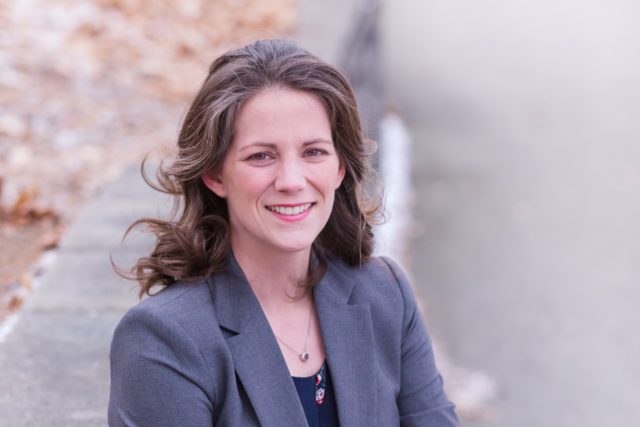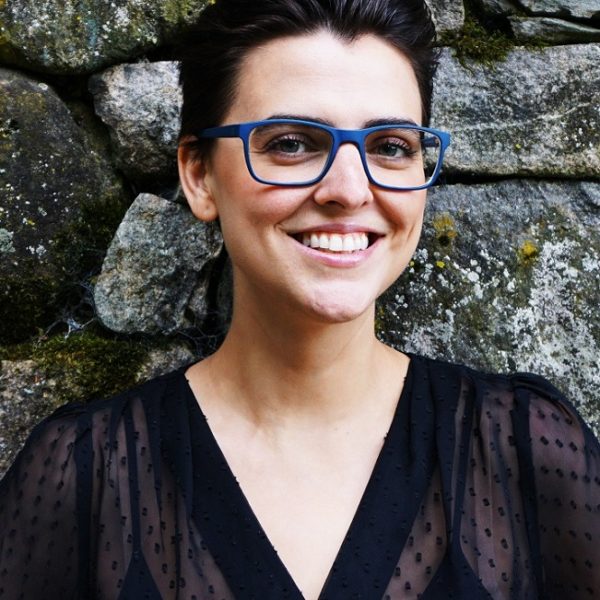Upstreamist In Action: How the YMCA Increased Its Diabetes Impact Through a Simple Upstream Strategy

Jen Nicodemus
Director of Health Innovations, State Alliance of Michigan YMCAs
Advice for Upstreamists
“Don’t do it alone. These are huge things that we’re trying to change, decades of patterns. We’re not alone; we just all feel like we are. So the more you can reach out and engage others who are doing the same work, the more you’ll feel inspired. It just reminds you, ‘Oh yeah, they’re successful. They figured it out. If they can do it, so can I.’ And it keeps you going.”
The Big Idea
What do you do when you have an effective program to promote health for members of your community, but some of the people who might benefit most aren’t using it?
In 2018, Jen Nicodemus, Director of Health Innovations at the State Alliance of Michigan YMCAs, faced this problem. More than 200 YMCAs across the country were running a CDC-recognized Diabetes Prevention Program, which had begun at one site in 2004 and proved so useful for people with pre-diabetes that it spread from there. The program revolves around a year-long class that supports eating healthier, increasing physical activity, and losing weight, all of which can delay or prevent the onset of type 2 diabetes. And participants across Michigan were successfully losing weight and meeting their exercise and nutrition goals. But despite the program’s success, most participants heard about the program through word-of-mouth or from marketing YMCAs did within their facilities; YMCAs couldn’t seem to get referrals from the most obvious set of potential referrers: healthcare providers. Amid the daily churn of appointments, practice change was proving to be just as tough for care providers as it can be for patients.
So Nicodemus decided to try a new approach with a more personal touch: Community Health Detailing™. The origins of this model lie in pharmaceutical detailing, the kind of brief, tailored one-on-one outreach that drug-company representatives use to teach doctors how to prescribe their products. Previously, YMCA staff had been trying to encourage referrals using information that wasn’t tailored to healthcare professionals. In this pilot, staff from YMCAs were taught how to “detail,” to do a more customized kind of outreach to help healthcare providers understand how the Diabetes Prevention Program could help them prevent more severe illness for their patients, as well as how best to refer patients to the program and work with local YMCAs on their shared goals. Nicodemus hoped this more structured, more personalized approach would help to increase enrollment generally and forge deeper partnerships with healthcare clinics specifically.
The Details
Jen Nicodemus’s Origin Story
Jen Nicodemus was 19 when she first felt pulled toward community health work while attending a family gathering. “I just looked around and I thought, ‘There’s a lot of unhealthy people in this room. Not active, very overweight.’ And I thought, ‘What can I do to help them? What can I do to help my parents and my grandparents?’”
She got a degree in exercise science and was in college when she first heard about the Diabetes Prevention Program from a professor. It made an impression; she remembers thinking it could really help people. She began a career as a personal trainer, which is what first brought her to the YMCA. Shortly after, she started working on the very program that had caught her attention in college. Then it came full circle.
“I had my dad go through the Diabetes Prevention Program,” said Nicodemus. “He learned a lot; it was really eye opening, I think, for him. But my grandparents have passed away. My mom has dementia. I was not able to do a lot of the stuff I wanted to do for them, but I can help somebody else’s parents and somebody else’s grandparents. And that’s why I do the work that I do.”
The Intervention
Community Health Detailing, developed by HealthBegins, takes a “train the trainer” approach. Step one, teach the staff or community members who have lived or professional experience and expertise on the program how to detail—including techniques around communication, goal setting and tracking, and the use of tools. Step two, detailers sit down with busy healthcare providers and “detail” them on how best to screen and refer patients to the program and how this supports their goals for patient care. Step three, conversations between detailers and providers continue over time, with each providing feedback to help improve workflows and ensure the patients who most need the program are being connected to it. Detailers also share back with providers—when participants have consented to it—how the participants whom providers have referred to the program are doing and any successes they are having as a way of continuing to build trust and interest in the program.
Nicodemus and colleagues from Michigan YMCAs, along with teams from the State Alliances of Massachusetts and Washington, got started in Community Health Detailing through a two-day train-the-trainer event with HealthBegins in 2019. Teams learned the detailing methodology and developed detailing campaigns to improve referrals to evidence-based health interventions, including the Diabetes Prevention Program, for specific patient populations. Since then, Nicodemus and peers from all three states have been implementing those campaigns with support from a learning collaborative designed to spread and scale learnings to other YMCAs.
Nicodemus says that the biggest shift since adopting the Community Health Detailing model has been that they enter conversations more with an eye toward building long-term partnerships. “Now we go in first with a listening ear,” she said. “We’re trying to understand more about the concerns that the doctor or nurse or office manager has for their patient and what concerns they tend to see the most often, so that we can see first if this is a likely partner, and second talk about what’s important to them and what we are able to support. We focus first on developing a relationship of trust so that they know who the YMCA is and that we have a long history of experience with the community and with their patients who are already coming to the Y.”
They have also made significant changes to how they talk about the Diabetes Prevention Program with healthcare providers. “We’d often go in with a brochure that [YMCA of the U.S.A.] made, and it has a lot of information on it and can be overwhelming to look at,” said Nicodemus. They’ve since developed a new marketing tool called the Pocket Card to guide their conversations with healthcare clinics. It simplifies the pitch, emphasizes specific health benefits, and uses language that healthcare workers will better understand.
Over time, Nicodemus says the plan is to have more staff from each local YMCA train and take over as detailers.
The Impact
Since the start of 2021, detailers from the State Alliance of Michigan YMCAs and the Muskegon, Michigan, YMCA have met with 15 healthcare clinics across the state, five of which are now referring patients to the Diabetes Prevention Program at their local YMCA. So far, 35 participants have been referred from those clinics.
“I’ve been working with the Diabetes Prevention Program for eight years and never got a single referral from a doctor for the program,” said Nicodemus. “Even among other YMCAs, very, very few referrals came from a medical clinic. So the fact that we got 35 referrals from actual healthcare clinics was really amazing. We did what we set out to do, to have the conversations and talk about the program in a way that fit the clinics a little bit better. We got them to buy into the work, the program, and the Y.”
They have also been able to improve the quality of referrals by helping healthcare clinics adjust their screening procedures and workflows to ensure the patients who will most benefit from the program—those who are pre-diabetic with specific A1C levels—are the ones being directed to local YMCAs. In addition, these strides have propelled an effort by the Y to make this work more financially sustainable. They’re piloting a payment partnership for the Diabetes Prevention Program with United Healthcare in Michigan, and the increased referrals through Community Health Detailing are a catalyst for that.
Lessons Learned
One of the biggest lessons from the pilot has been that developing a long-term, sustainable partnership with a clinic requires relationships with more than one person. “You’re probably going to have to build a relationship with the office manager and with at least one doctor and at least one nurse,” says Nicodemus. “You’re going to need a relationship with the referral coordinator. We have learned that if you only have one relationship in the clinic, that person is going to change jobs and then you will have nothing. And you have to keep going after the clinics. It can’t be a one-and-done meeting; you have to keep engaging with them.”
Kate Marple is a Boston-based writer who specializes in helping nonprofit, health care, and legal services organizations develop practices to ensure that the stories they tell are shaped by and benefit people directly impacted by the issue(s) those stories are about. Her website is https://whotellsthestory.org.
Learn how HealthBegins can help you move healthcare upstream. Contact us to learn more.
Featured Content
Staff Spotlight: Erica Jones, Following Her Path and Passion to Help People
“I wish people would try to advocate for themselves more, because I feel like there's this power struggle and people don't feel like they can.”
Staff Spotlight: Kyron Pierce, The Eagle Scout with a Passion For Helping People Lead Healthy Lives
“[Health equity] is very hard work and it might be some years for us to see the fruits of our labor, but it'll be worth it when you do produce it.”
Staff Spotlight: Alejandra Cabrera, Perfectly Imperfect Artist and Health Equity Advocate
When I work with people and communities, I always think back to this sense of not belonging and it drives me to continue to do the heart-work we need to do to advance health equity.


